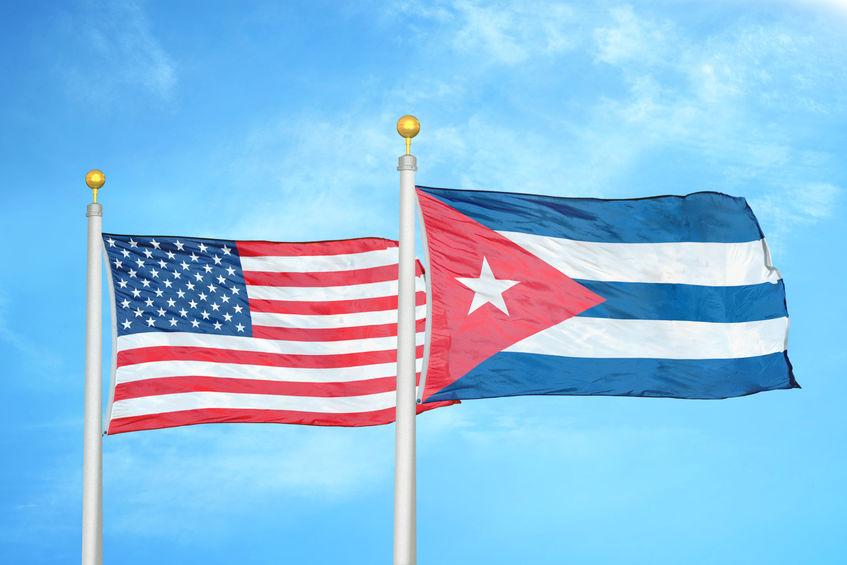As the grandchild of Cuban immigrants and a committed Democrat, I have to say I was disappointed in how my community voted in the November election. (I won’t belabor the specifics, but NBC exit polling estimated 55% of Florida Cubans voted for President Donald Trump, in line with predictions from the annual Cuba Poll and below some competing estimates).
Much thoughtful reflection by journalists and academics has already been given to explaining why Democrats underperformed among Florida Cubans. Alongside these, I respectfully submit my theory: that many in our community have made socialism their singular political concern, ignoring a host of problems which predate Fidel Castro and are worthy of our focus today.

It’s no secret that the specter of communism continues to haunt Cuban-Americans (one of our own spoke forcefully against the Castro regime during a primetime slot at the RNC). From how much attention our community gives to the 1959 revolution, one might believe Cuba was more or less free before – that it was Castro and his revolutionaries who fatally destabilized democracy, radicalizing moderates with calls for socialism.
President Trump is a vocal proponent of this view, often wielding it to strategic effect, as when recently, at a rally in Miami’s Little Havana, he told a crowd of Cuban-American veterans that “socialism, radical mobs, and violent communists ruin a nation.”
Ignoring its conspicuous errors – Castro kept his socialist politics quiet until several years into his government – that account leaves little room for the struggles Cubans faced before the revolution (and after) for fair elections, labor laws, landownership for the campesinos, and an end to corruption. (One recall’s the playwright Arthur Miller’s line that Cuba before 1959 was “hopelessly corrupt, a Mafia playground, a bordello for Americans and other foreigners.”)
It also fails to account for the host of hot-button political questions that touched Cubans far away from the reaches of Castro or communism, including detention and deportation by US immigration authorities, and, more recently, anti-immigrant violence (Cubans today represent a sizable portion of asylum seekers at the US-Mexico border and are often targeted while they await entry into the US), to name only a few.
Call it a politics of distraction then: Republicans parlaying fears of socialism into conservative wins while ignoring other, more pressing political questions for our community (questions on which we might find better friends in the Democrats). It worries me to think Cuban-Americans might be getting their bearings from this rhetoric when remembering our history and making political decisions.
Some of us seem to forget that life before Castro was dense with difficult political questions, in some ways mirroring the issues of our own time: on poverty, foreign political interference, democratic integrity.
Talking politics with my grandmother recently, I was reminded that her life as a young woman in Cuba was in many ways defined by these crucial forgotten struggles.
As a teenager, my grandmother watched the right-wing populist General Fulgencio Batista seize power in a putsch – partly with US backing. As she recalls it, the Batista dictatorship struck a hard blow to Cuba’s aspirations for democracy. Police repression became common; corruption was rampant.
Democracy had become so restricted that in 1958, my grandmother and some friends at the University of Havana were even modestly optimistic about news that a band of guerrillas was beating back Batista’s armed forces in the east of the island. Few knew whether or how these men would govern, but there was much resentment toward the dictatorship and the cronyism (not to mention the violence) that Batista embodied.
Acknowledging this history and the many others like it might permit us to turn our focus to a slew of pressing issues – whether anti-corruption laws, immigration reform, health care access, voting rights protections – that the GOP has deferred, or backpedaled on, for some time.
None of this is to dismiss the cruelty of the current Cuban regime or to fault Cuban-Americans for being wary of socialism. Visitors take quick notice of the enduring poverty and malnutrition facing most Cubans. International human rights observers note Castro’s long rap sheet of political crimes. All of these merit deep and enduring concern.
But they should not blind us to the politics of the present. The Republican Party has made every effort to court our votes through old, Cold War rhetoric while deferring on a range of issues – often of greater substance – that are both concerning and actionable in the present day.
When we ignore these to lend our support to the GOP, we put our democracy at risk and, perhaps just as bad, we implicate our community in whatever follows.
Henry Brooks is a recent graduate of Harvard College, where he studied Social Studies with a focus on Latin America.






